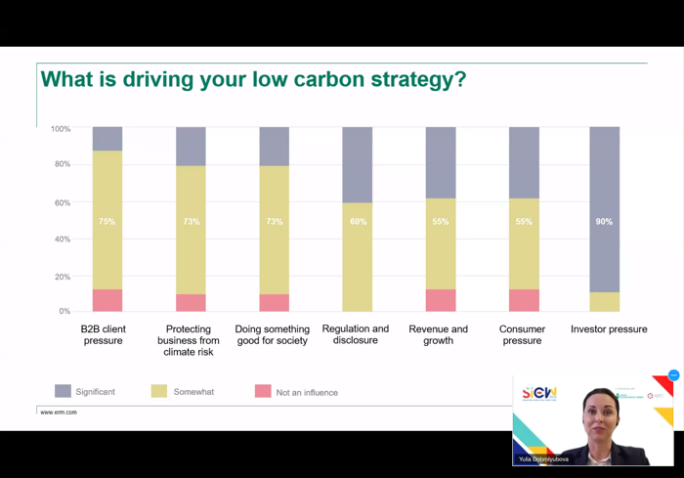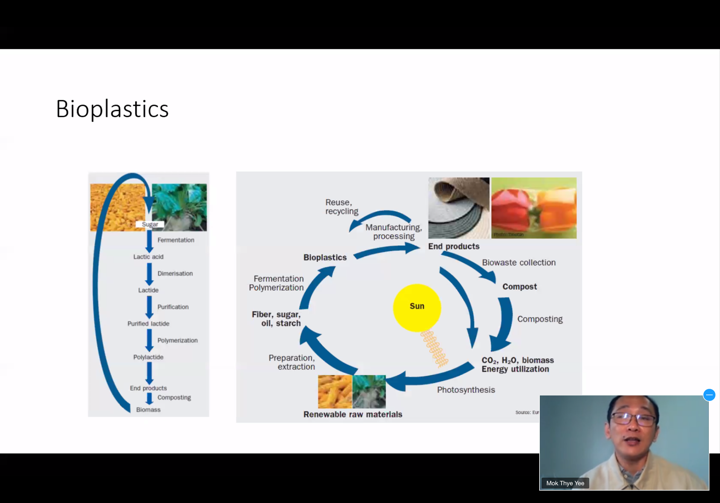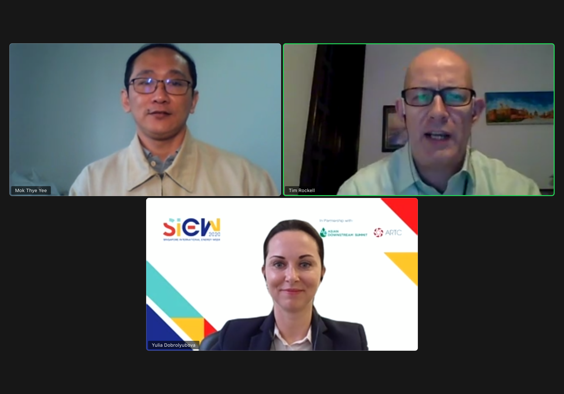As the oil and gas industry navigates new market uncertainties, there is fresh impetus for downstream and petrochemicals companies to pursue strategies and technologies that will help raise the bar for sustainability.
The industry’s burgeoning shift towards sustainability was the focus of the first edition of the SIEW Energy Insights Webinar Series, co-hosted by SIEW and Clarion Events, organiser of SIEW partner event Asian Downstream Summit & Asian Refining Technology Conference.
The webinar brought together a panel of expert speakers for an engaging discussion on how companies in the downstream sector can respond to new sustainability demands.
The webinar commenced with a presentation by Ms Yulia Dobrolyubova, Partner of Corporate Sustainability and Climate Change (CSCC) at ERM on the current challenges faced by the industry with regards to low carbon transition. The second speaker, Mr Mok Thye Yee, Manager (FEED-Downstream) Group Technical Solutions, Project Delivery and Technology from Petronas spoke on emerging technologies that could move the energy transition forward. The speakers subsequently joined a question and answer (Q&A) session moderated by Mr Tim Rockell, Chairman of Energy & Utilities Business Committee, British Chamber of Commerce, Singapore.
Navigating risks and opportunities in low carbon energy transition
Ms Dobrolyubova shared insights from recent ERM research to illustrate the challenges that a low carbon transition poses—and the steps that oil, gas and downstream firms can take to adapt to the sustainability shift.
"The current market transformation presents a unique opportunity for energy companies and the related upstream and downstream sectors to rethink their future business strategy and invest in new solutions such as renewable energy systems," Ms Dobrolyubova said.

Sharing results from a 2019 survey conducted by ERM and Yale University, Ms Dobrolyubova noted that investor pressure is cited by 90% of the oil and gas executives surveyed as a key driver for their low carbon strategy. She added that forward-thinking companies are taking proactive steps to mitigate risk factors in their sustainability strategies, such as making portfolio changes to address low carbon transformation and eliminating greenhouse gas emissions from ongoing operations.
New technologies to improve sustainability in oil and gas
New advances in biofuels and hydrogen are some of the emerging technologies that could help propel the low carbon transition forward.
In his presentation, Mr Mok from Petronas highlighted the potential for the oil and gas industry in Southeast Asia to tap into the region’s rich and diverse biomass resources to support the sustainability agenda. He pointed out how Thailand has tapped on the strength of its strong agricultural base to develop its bioplastics manufacturing hub.

“The integrated refinery and petrochemical complex of the future should take into consideration the co-processing of renewable and bio-based feedstock with fossil fuels," Mr Mok added.
Growing emphasis on renewables and low emission technology
As we move closer to 2030, what are the ways forward for the refining and petrochemicals industry to achieve a low carbon future? In a poll conducted during the webinar, one-third (33%) of the respondents said that energy companies should focus their emissions reduction efforts on decarbonising their own upstream and downstream operations with renewable energy over the next five years.

Moderating the Q&A session, Mr Rockell fielded questions about the prospects for the use of renewables and low emission technology across the energy value chain.
On carbon capture and storage (CCS), Mr Mok shared that while CCS technology is an important part of minimising carbon emissions, government regulations such as carbon tax will greatly influence the technology’s implementation.
Ms Dobrolyubova concurred that carbon pricing policies are critical for technologies such as CCS to become more economically viable. “In the petrochemicals and refining industry, carbon pricing can also be an important motivator for companies to diversify their portfolios and transform their business models to integrate more renewables,” she added.
On the SIEW 2020 theme, ‘Creating Our Low Carbon Energy Future Together’, Mr Rockell commented that: “We’re in this together…. If we want to collectively reach the sustainability targets set for 2030, we have to start now.”. The panellists look forward to robust discussions with industry and government stakeholders on key energy issues at SIEW 2020 this October.
Don’t forget to check out what we have lined up in the upcoming sessions of the SIEW Energy Insights Webinar Series.